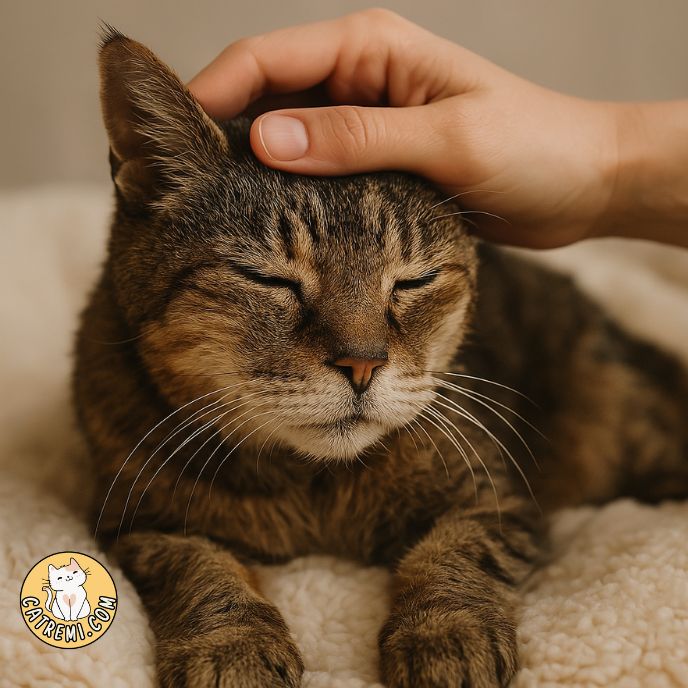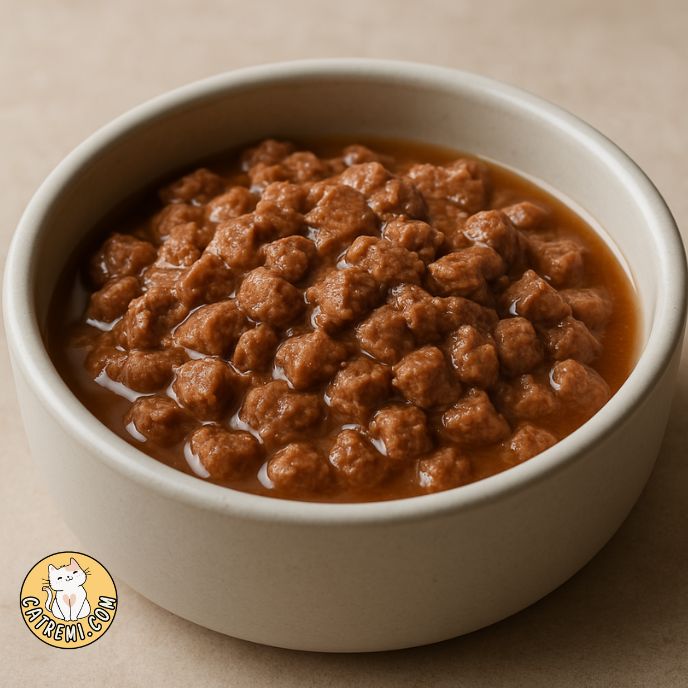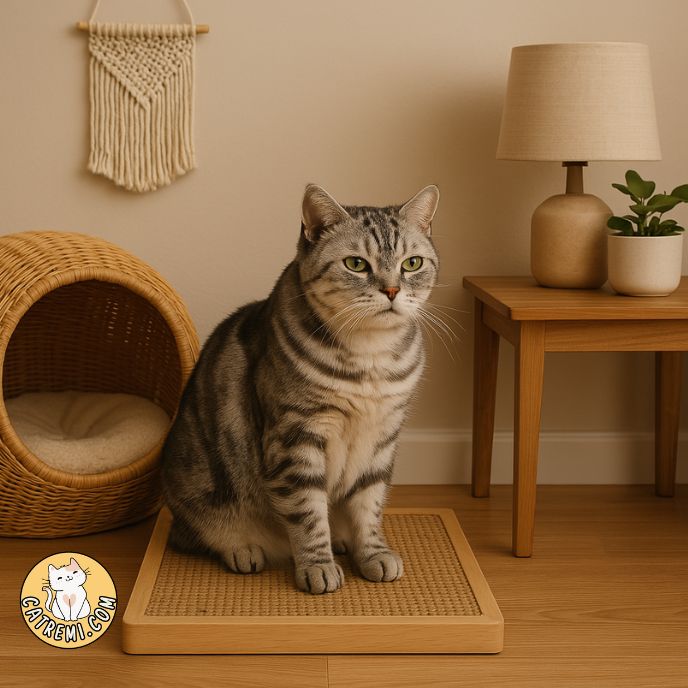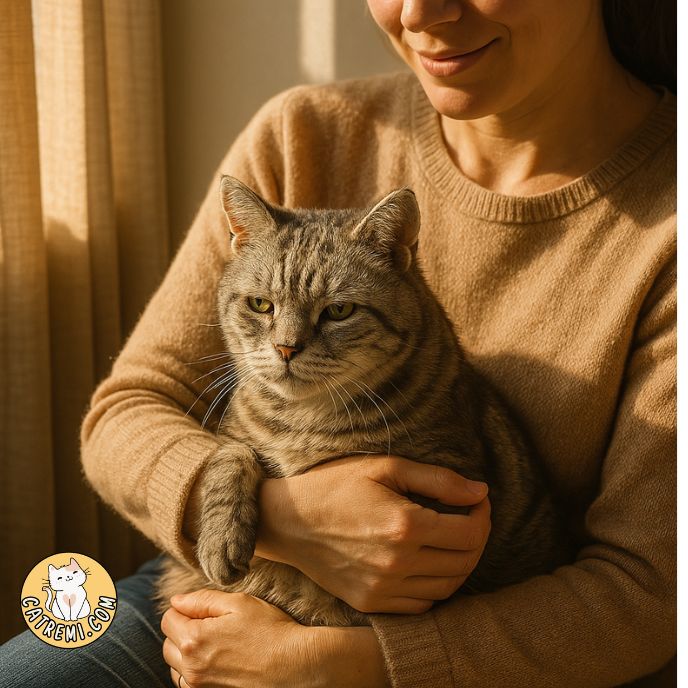🐾 Senior Cat Care Guide: A Loving Approach to Aging Cats
Because every whisker, purr, and pawprint still matters.
🧡 Why Senior Cats Deserve Special Care
As cats age, they experience a range of physical and emotional changes — just like humans. Their metabolism slows down, joints may become stiffer, and their senses such as vision, hearing, or smell might gradually decline. You might notice your senior cat sleeping more during the day, moving with more caution, or hesitating to jump onto high surfaces they once navigated with ease. These changes are natural, but they signal the need for gentle adjustments in their environment and care routine.
Emotionally, older cats can become more sensitive and may seek extra affection and reassurance from their humans. Some may become clingier and enjoy quiet moments of cuddling, while others may prefer solitude and a calm atmosphere. Their personalities may subtly shift, and it’s important to be patient, observant, and responsive to their evolving needs.
However, aging doesn’t mean the end of joy. With thoughtful care, regular vet check-ups, a nutritious diet tailored to their age, and a comfortable, stress-free home, senior cats can thrive. They can enjoy their golden years with grace, surrounded by the love and warmth of the family they’ve spent their lives with. These moments, filled with quiet companionship and deep bonds, often become the most meaningful chapters of your life together.

🩺 Signs Your Cat is Becoming a Senior
- Less activity or playfulness
- Changes in appetite
- Sleeping more than usual
- Stiffness or difficulty jumping
- Weight gain or loss
- Changes in grooming behavior
Most cats are considered “senior” around 7–10 years old. Early recognition of aging signs helps provide better care.
🥣 Nutrition Tips for Senior Cats
As cats grow older, their nutritional needs change. Their bodies may not process nutrients as efficiently as before, and health conditions like kidney disease, arthritis, or obesity become more common. That’s why providing a well-balanced, age-appropriate diet is one of the most powerful ways to support your senior cat’s health and longevity.
Here are some key components to look for in senior cat food:
🔹 High-quality protein
While protein remains essential for maintaining muscle mass, it should come from easily digestible sources like chicken, turkey, or fish. Some senior cats may develop kidney issues, so it’s important to balance the protein content carefully with your vet’s guidance.
🔹 Omega-3 fatty acids (like EPA & DHA)
Found in fish oils, omega-3s help reduce inflammation and support joint health, which is especially beneficial for aging cats who may struggle with arthritis or stiffness.
🔹 Low phosphorus
Reducing phosphorus intake is crucial for cats with kidney concerns. Many senior-specific formulas contain controlled phosphorus levels to help slow the progression of kidney disease.
🔹 Easily digestible ingredients
Older cats may have more sensitive stomachs. Look for diets made with gentle ingredients, fewer fillers, and added prebiotics to support digestive health.
🔹 Added vitamins and antioxidants
These can strengthen the immune system, support brain health, and help with aging gracefully. B vitamins, vitamin E, and taurine are especially important.

📝 Pro Tip:
Wet food is an excellent choice for senior cats, especially those who don’t drink much water. It not only keeps them better hydrated — which supports kidney and urinary health — but is also easier to chew for cats with dental issues. You can even warm it slightly to enhance the aroma and stimulate appetite.
🛏️ Creating a Comfortable Environment
As part of any complete Senior Cat Care Guide, providing a safe, comfortable, and supportive home environment is just as important as nutrition or vet check-ups. As cats age, their mobility, energy levels, and senses may decline. Small adjustments in your home can make a big difference in your senior cat’s daily comfort and quality of life.
Here are some ways you can create a cozy, accessible haven for your aging feline:
🔹 Soft Bedding in Quiet Areas
Senior cats tend to sleep more and prefer undisturbed rest. Provide plush, supportive bedding in warm, quiet corners of the home, away from loud noises and foot traffic. Orthopedic pet beds can help reduce pressure on their joints and bones.
🔹 Heated Pads for Arthritis Relief
If your cat suffers from arthritis or stiffness, a low-level heated pad can offer soothing warmth. Make sure it’s pet-safe, temperature-controlled, and placed in a bed they already love.
🔹 Ramps or Pet Stairs to Their Favorite Spots
Cats love their window perches and cozy shelves — but jumping becomes harder with age. Lightweight ramps or padded steps can help them reach their favorite spots without strain, supporting their independence and emotional well-being.
🔹 Non-slip Mats on Smooth Surfaces
Slippery floors can lead to falls or hesitation to move around. Place non-slip rugs or mats on tile, wood, or other slick flooring to help your senior cat move confidently.
🔹 Easily Accessible Essentials
Keep food bowls, water dishes, and litter boxes on the same floor where your cat spends most of their time. Avoid stairs if possible, and use low-sided litter boxes for easier entry. In a thoughtful Senior Cat Care Guide, this tip can’t be overstated — accessibility reduces stress and encourages regular eating, drinking, and toileting.

👩⚕️ Vet Visits and Preventive Care
One of the most important pillars in any Senior Cat Care Guide is regular veterinary care. As cats age, their risk of developing chronic conditions such as kidney disease, arthritis, and dental problems increases significantly — and they may not always show clear signs of discomfort. That’s why preventive care and consistent checkups are critical in helping your cat enjoy a longer, healthier life.
Here’s what to focus on during routine vet visits:
🔹 Twice-a-Year Checkups
Unlike younger cats, senior felines should see the vet at least every six months. This allows early detection of age-related health problems before they become severe. Your vet can compare bloodwork, weight changes, and behavior patterns over time to spot subtle shifts.
🔹 Kidney and Liver Function Tests
These are essential for aging cats, especially since kidney disease is one of the most common conditions affecting senior felines. Regular blood and urine tests can reveal how well these organs are functioning and help guide dietary or medication adjustments if needed.
🔹 Arthritis and Joint Health Assessments
Your cat may not cry out in pain, but stiff movements, reluctance to jump, or changes in grooming behavior can all be signs of arthritis. Vets can recommend treatments, supplements, or lifestyle changes to ease joint discomfort and improve mobility.
🔹 Dental Exams
Dental disease is widespread in older cats and can lead to pain, infections, and even organ damage if untreated. A thorough oral exam — and professional dental cleaning when needed — can prevent long-term complications and keep your cat eating comfortably.
🔹 Vaccination and Parasite Control
Even indoor senior cats need updated vaccinations and regular parasite prevention. A weakened immune system in old age makes them more vulnerable to illness. Your vet will tailor a vaccination schedule based on your cat’s lifestyle and health status.
Early detection leads to better outcomes. Many age-related conditions can be managed successfully when caught in the early stages. With consistent vet care, you can ensure your senior cat not only lives longer but also enjoys every day in comfort and health.
🧼 Grooming & Daily Routines
As part of a complete Senior Cat Care Guide, grooming and daily routines play an important role in maintaining not just your cat’s physical health — but also their emotional well-being. As cats get older, they often groom themselves less effectively due to stiffness, dental discomfort, or decreased flexibility. That’s where your gentle care and attention can make a big difference.
🪮 Grooming Support for Senior Cats
🔹 Brushing Weekly (or More Often for Longhairs)
Senior cats may develop mats, greasy fur, or dandruff because they can’t reach certain areas anymore. Regular brushing helps remove loose fur, distribute natural oils, and keeps their coat soft and clean. It’s also a great bonding time.
🔹 Trimming Nails
Older cats are often less active, so their claws don’t wear down as naturally. Overgrown nails can curl into their paw pads, causing pain or infection. Check their claws every 2–3 weeks and trim as needed, or ask your vet or groomer for help.
🔹 Check for Lumps, Bumps, or Skin Issues
While brushing, gently run your fingers over your cat’s body to check for any unusual swelling, scabs, or irritation. Early detection of skin issues or tumors can be life-saving.
🕰️ Daily Routines = Emotional Security
Senior cats thrive on consistency. Changes in their environment, feeding times, or even your presence can lead to stress or confusion — especially if they’re experiencing cognitive decline.
🔸 Feed at the Same Times Every Day
Keep mealtime predictable. Use a quiet, accessible location and avoid frequent changes in food brands unless advised by a vet.
🔸 Consistent Playtime & Affection
While they may not play as energetically as before, older cats still benefit from gentle stimulation — like wand toys, scent games, or soft cuddles. These interactions reinforce your bond and support mental sharpness.
🔸 Nighttime Calm
Some senior cats develop restlessness at night. Keeping lights dim, sticking to a bedtime routine, or using calming pheromone diffusers may help them relax.
By helping with grooming and maintaining a consistent daily rhythm, you’re not just supporting their hygiene — you’re giving your beloved cat a sense of peace, routine, and love during their golden years. In every well-rounded Senior Cat Care Guide, this kind of everyday care is the heart of what makes their later life feel safe and meaningful.
🧸 Mental & Emotional Wellness
In any well-rounded Senior Cat Care Guide, caring for your cat’s mind and emotions is just as vital as supporting their physical health. While senior cats may seem more relaxed or sleepy, that doesn’t mean their need for engagement and love disappears. In fact, gentle mental stimulation and consistent affection can help prevent boredom, reduce anxiety, and slow age-related cognitive decline — all while strengthening your bond.
Here are some thoughtful ways to support your senior cat’s mental and emotional well-being:
🧠 Mental Stimulation
🔹 Puzzle Toys
Food-dispensing toys or treat puzzles are excellent for engaging your cat’s mind in a fun, rewarding way. Choose options with easy difficulty settings for older cats, and use their favorite treats or bits of their regular food to keep them motivated.
🔹 Gentle Playtime
Even if your cat doesn’t have the same energy as before, short play sessions using soft wand toys, slow-moving feather teasers, or laser pointers (in moderation) can keep their reflexes sharp and bring joy to their routine. Let them set the pace.
🔹 Window Perches & Cat TV
Senior cats love observing the world. Install a cushioned window perch where they can safely sunbathe and watch birds, leaves, or people outside. You can also try playing calming YouTube videos of birds or aquariums to entertain them indoors.
💛 Emotional Comfort
🔸 Calming Pheromone Diffusers
Plug-in pheromone products (like Feliway) can help ease anxiety, especially in cats experiencing cognitive dysfunction or increased sensitivity to change. These diffusers release synthetic feline “happy signals” that promote a sense of security.
🔸 Talk to Them & Stay Present
Many older cats enjoy simple companionship — hearing your voice, lying next to you, or being gently petted. Your consistent presence provides emotional reassurance and helps ease loneliness, especially if they’ve lost a feline companion.
🔸 Routine and Familiarity
Sudden changes in environment or schedule can confuse older cats. Stick to familiar routines, avoid rearranging furniture, and keep their favorite blankets or beds nearby. Familiarity builds confidence and helps them feel safe.
Providing regular mental and emotional enrichment is one of the most loving things you can do for your senior cat. These moments of interaction — whether through a gentle game, a quiet cuddle, or simply sitting by their side — become treasured rituals that make their golden years truly shine.
❤️ Final Thoughts: Your Cat’s Golden Years
Senior cats may no longer leap onto high shelves or chase toys with kitten-like energy, but their hearts remain just as full of love — perhaps even more. In these quiet, golden years, they often become more affectionate, more soulful, and more deeply connected to the humans who have shared their journey.
They may follow you from room to room, curl up beside you in silence, or gaze into your eyes with a depth that words cannot describe. These are the moments when love speaks not through action, but through presence. They trust you more than ever. And in return, they ask for nothing more than comfort, kindness, and a safe place to rest their aging paws.
With a little patience, a few thoughtful adjustments, and consistent care, these later years can be a season of gentle joy — a time of slow mornings, soft cuddles, and cherished routines. The bond between you and your senior cat doesn’t fade with age; it deepens. It becomes something tender, quiet, and profoundly meaningful.
So as you walk with them through this chapter of life, know that every gentle brush, every warm bed, every calm word whispered into a soft ear is a gift they never take for granted. You are their home. Their comfort. Their forever.
In caring for them, you’re not just extending their life — you’re enriching it, filling it with dignity, warmth, and love. And in doing so, you’ll create memories that will forever stay tucked in your heart, long after their soft purrs have faded into silence.
Because the golden years… are golden for a reason.

